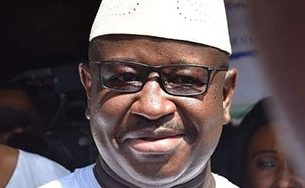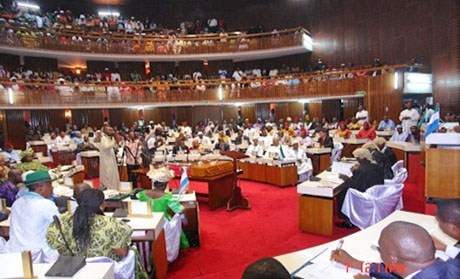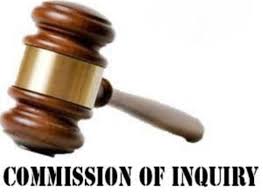Gender Barriers still an issue in Sierra Leone Politics
Dallas, Texas, USA; December 19, 2010 – This article is in response to so many women and men from Sierra Leone living in the United States who want to know whether or not women are serving the role of partners in the development in our country, whether their contributions are significant to the survival of parts of the civil and physical infrastructure in our country. (Photo: Hon. Zainab Bangura, Sierra Leone’s Minister of Health and Sanitation)
The purpose of this piece is to understand some of the reasons responsible for this blatant marginalization of women in our society and how, together we can say no to marginalization of women.
The recent Cabinet reshuffle in our country has proven that the distinctions between men and women continues to widen and consequently is beginning to polarize the political arena in the country. Women continue to view their lack of full participation in the running of the government as a marginalization in our country. Many people in the Diaspora have raised concerns about this pathetic divide between men and women and the question, why does gender inequality still exist in our political structure is raising a serious concern.
Do our political leaders still have the mythical belief that men can perform better in the function of societies than women? Or is it because of the traditional belief that women’s task in building societies is less value than men? For the fact that Sierra Leoneans ever consider women for social and economic value as homemakers? Or, is it because of women’s lack of advancement into leadership positions despite the visible barriers?
Since we attained independence from the British colonial rule, there has been no leader who can challenge the singular and unitary conception of gender identity in terms of encouraging women to participate in a political administration. Despite the fact that we have seen the performances of Margaret Thatcher in Britain, Benazir Bhutto of Pakistan, Kumara Tonga of Bangladesh, Indhira Gandhi of India; and right now, Angela Michael of Germany, and the United States powerful Secretary of States, Hillary Clinton. All those women have played important roles in different political administrations which made their countries break a grip from the traditional monopoly of men.
It seems as if the scoop of knowledge about women’s intelligence is still lacking in our culture. The latest cabinet reshuffle became a disturbing moment and caused heated debates among so many people around the world. Some saw it as if the president thrived on traditional values by having fewer women in his cabinet. Out of the twenty-nine Cabinet Ministers and Cabinet level positions, only two women, Zainab Bangura as Minister of Health and Sanitation, and Ms Saidatta Sesay as Deputy High Commissioner to The Gambia, were called to represent us. Two other women are now serving as Deputy Ministers in two different Ministries. Looking at the women mentioned in this article, one can see that their intelligence and performances seem to be the most obvious and dependable indicators of high potentials. Of course, Zainab Bangura has proven to us that women have potential in doing anything especially the roles she played in the peace building process during the war as well as during the transition from conflict.
The question some women have asked me to pose on their behalf is this: Does President Koroma have a positive perspective on women in terms of public administrations? Doubtful! Some say. Why are there only 2.4% of women in his new administration? Let us face the fact – our country’s political structure has developed with the philosophy that our government should involve women in the social, political, and economic structure where women’s right and privileges must be enhanced and protected. With the new Cabinet of Ernest Koroma, is it a government that we can describe as best equipped to provide a structure and environment where women can enjoy their rights and privileges?
I have been receiving phone calls from different angles with the question of “Where are the women?” Despite the fact that so many people across the globe have given an overwhelming compliment to President Koroma for a well inclusive cabinet, it seems that President Ernest Koroma’s decision of considering fewer women in his administration sends a startling ambivalence to many Sierra Leoneans living abroad. I have never intended to lament on this Cabinet reshuffle issue until after confirmation by Parliament, but I have been burdened by the subject with people who are concerned about gender barriers.
Before the reshuffle, I faced hypothetical questions from citizens of Sierra Leone and mostly supporters of the ruling, All People’s Congress party about eligible women in the Diaspora that have high potential for leadership. Some of them are not registered APC membership, but who many believe to be resourceful. My ears are clogged with decorated words of recommendation about certain women I would not like to name. However, there are very strong APC, SLPP, and independent women in the Diaspora, who have huge potential in carrying the functions of cabinet ministers in our country.
In view of the above, it is my duty as a Sierra Leonean to inform authorities about the views and opinions of people who love our country. It is an undisputable fact that the responsibilities of a president are enormous. Most people are probably aware that the head of state’s job is critical so to speak. The President does not see his back until someone tells him. I have no doubt that Ernest Koroma does not sleep because he has to fix the numerous problems in our country, but at the same time he must be knowledgeable about potential and competent people in the Diaspora. More competent women are countless at home; therefore, the process of identifying high potentials might appear to be obvious and simple. Listen to some journalists, Ambassadors, and High Commissioners in the case of Diasporas, contact international agencies and read resumes yourself so that you don’t have to marginalize women, intentionally or unintentionally.
By Sanpha Sesay, Texas Correspondent
Stay with Sierra Express Media, for your trusted place in news!
© 2010, https:. All rights reserved.






